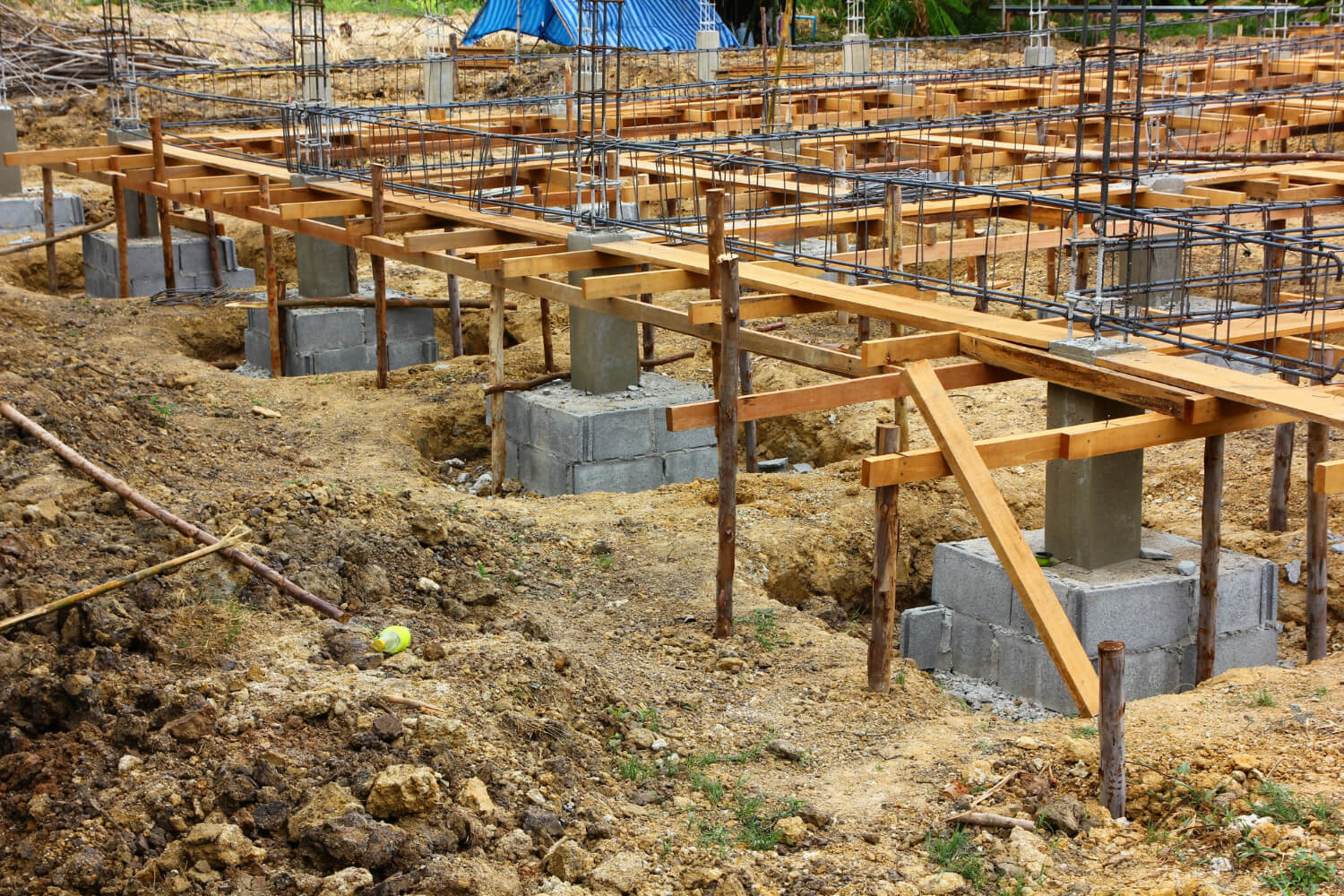How long do houses last, on average?
Updated Mon, Dec 15, 2025 - 8 min read
Top blog articles
How long do houses last? The answer to this question can make a big difference in your real estate investment. Whether you’re buying a home built recently or living in a home that’s already stood for decades, the truth is, there’s no one-size-fits-all answer to this question. That’s because many factors influence the lifespan of a house, from weather conditions to construction materials and regular maintenance.
Buying a house is a major step—it’s probably the biggest financial move you’ll ever make. Naturally, you might be curious about how long a house can hold up. Even though a properly constructed home can last for a good number of years, the truth is that nothing lives on forever. So, let’s explore the average lifespan of a house and the factors that affect its longevity.
So, how long do houses last?
In the United States, homes can last a surprisingly long time if they’re built with durable materials and properly maintained. Generally speaking, the average lifespan of a house is around 50 to 100 years. However, many houses built with high-quality materials and good construction techniques can last well beyond that – sometimes more than 100 years!
On the flip side, some homes have shorter lifespans, closer to 20 to 50 years, depending on factors such as material choices, location, climate, and the frequency of home maintenance. These are generally in areas with extreme weather conditions or natural disasters. Or, houses that have been neglected and abused!
What is the average life span of your home components?
The lifespan of components can vary based on factors such as quality, materials, maintenance, and usage. Keep in mind that these are general estimates.
Foundation and framing

- Concrete foundation: 100+ years
- Wood: 60 years
- Brick: 65 years
Roof
- Asphalt shingles: 20 to 30 years
- Metal roofing: 40 to 70 years
- Wood shingles/shakes: 20 to 30 years
- Slate/tile roofs: 50 to 100+ years
Windows
- Aluminum: 15 to 20 years
- Wood: 20 to 30 years
- Vinyl: 20 to 40 years
HVAC systems
- Furnace: 15 to 30 years
- Central air conditioning: 15 to 20 years
- Heat pump: 10 to 15 years
Water heater
- Tankless water heater: 20+ years
- Tank water heater: 8 to 15 years
Flooring
- Hardwood flooring: 25 to 100 years
- Laminate flooring: 15 to 25 years
- Carpet: 5 to 15 years
Exterior paint
- Wood: 5 to 7 years
- Stucco: 5 to 6 years
- Aluminum siding: 5 years
Appliances
- Refrigerator: 13 to 19 years
- Dishwasher: 9 to 16 years
- Washing machine: 8 to 12 years
- Dryer: 12 to 16 years
Cabinets
- Kitchen cabinets: 50 years
- Bathroom cabinets: 20 years
Siding
- Vinyl: 20 to 40 years
- Wood: 20 to 40 years
- Fiber cement: 25 to 50 years
Plumbing pipes
- Copper: 50 to 100 years
- Galvanized steel: 20 to 50 years
- Cast iron: 50 to 100 years
- Brass: 20 to 50 years
What are the factors that affect the life expectancy of a house?
Location

- High pollution areas lead to faster deterioration.
- Extreme weather conditions increase wear and tear, especially in hurricane or tornado-prone zones.
- Flood-prone areas may face mold growth and water damage.
Construction materials
- Durable materials contribute to a longer lifespan (e.g., brick or stone vs. wood or plaster).
- Quality materials can extend the house’s life to over 100 years, while cheap ones may wear out in 10 to 20 years.
Building design
- Critical for withstanding natural disasters such as earthquakes and floods.
- Sustainable materials and designs that resist the effects of time contribute to longevity.
Home maintenance
- Regular upkeep is essential for preserving a house’s integrity.
- Timely home maintenance prevents future repair costs and prolongs the home’s lifespan.
- Cleaning, tree trimming, and roof checks contribute to a well-maintained and longer-lasting house.
How to extend the lifespan of your home?
Want your home to last as long as possible? You will have to keep an eye on crucial home systems and stay on top of home repairs. And, your house could be around for generations! Here are some useful tips to keep your home in great shape:
- Inspect your home regularly. The aim is to catch small issues early, like cracks in the foundation or a leaky roof. Remember that preventive care can prevent bigger problems later.
- Invest in durable materials. If you’re building or renovating, choose durable materials such as brick, stone, or metal roofing for longer-lasting results.
- Ensure your home has proper ventilation and waterproofing to avoid mold, rot, and other moisture-related issues.
- Maintain your systems regularly. You need to schedule routine checkups for your HVAC system, plumbing system, and electrical systems to avoid costly replacements.
What damages a house the most?
Of all the hazards, water damage can wreak havoc in your house the most – damaging its very foundation. For instance, a small leak in the attic can let excess moisture seep into your home over time and damage the walls, electric work, and heating system. It’s best to have a home inspection and have a home inspector check for any issues before they become too big to handle.
What are some essential home maintenance tips?
There are things you need to do as a homeowner to make sure your home lasts as long as you want it to. You can always count on Kukun MyMaintenance to keep track of your routine upkeep chores. All you have to do is schedule the following tasks (and more) on a personalized calendar and get timely reminders of what needs to be done and when.
- Make sure your home is well-insulated to trap the heat inside. This includes your attic and basement.
- Invest in a durable roofing system and inspect for leaks around windows and doors.
- Regularly check for signs of pests such as termites, ants, or rodents. Address issues promptly to prevent pest infestations.
- Prevent water pooling near your foundation by cleaning rain gutters at least twice a year.
- Block out the cold by sealing any cracks or holes in walls and the foundation with caulking.
- Check for plumbing, electric wiring, and drainage issues regularly.
- Ensure that smoke detectors and carbon monoxide detectors are working properly by testing them and replacing batteries.
- Maintain proper indoor ventilation to keep your home comfortable year-round.
- Check and replace HVAC filters to ensure efficient heating and cooling systems. This also improves indoor air quality.
- Inspect and clean appliances such as the refrigerator, oven, and dishwasher to ensure they are working efficiently.
- Keep your home clean by vacuuming and dusting regularly.
- Use mild cleaning products to avoid damaging surfaces. Harsh chemicals can cause permanent damage.
How long do houses last? Key takeaway
A newly built house typically has an average lifespan of 50 to 70 years. And, a properly maintained home can last for 100 years. That said, the lifespan of a home may be reduced due to factors such as poor-quality building materials and exposure to harsh weather conditions.
However, regular repairs and home maintenance can enhance the longevity of a house. It can add many years to your home, and save you good money by helping you prevent expensive repairs and replacements. Keep in mind that even insurance companies don’t like neglected homes. They may charge hefty insurance premium costs for an ill-maintained older home. The bottom line is that if you look after your home well, it will stand the test of time and look after your needs for generations to come!
FAQs
What damages a house the most?

Of all the hazards, water damage can wreak havoc in your house the most – damaging its very foundation. For instance, a small leak in the attic can let excess moisture seep into your home over time and damage the walls, electric work, and heating system. It’s best to have a home inspection and have a home inspector check for any issues before they become too big to handle.
What can you do to extend your home’s lifespan?
The key is to look after it well. Home maintenance can add many years to your home, and save you good money by helping you prevent expensive repairs and replacements.
Keep in mind that even insurance companies don’t like neglected homes. They may charge hefty insurance premium costs for an ill-maintained older home.
Additionally, make sure to pick strong, good-quality building materials when you’re setting up your living space. Explore different options, their pros and cons, and how well they suit your lifestyle. For instance, stainless steel is great because it doesn’t rust and can handle water well, making it a sturdy choice for home appliances and fixtures.
And, always weatherproof your home. Consider the weather where you live when picking materials for your home. For instance, in coastal areas, metal fixtures may not be the best choice because they can rust from the saltwater.
What makes a house old?
In some countries, a house built over 100 years ago is considered old, while in others, 50 years might do it. It mostly depends on what people are used to in the housing market. Sometimes, a house can be called old if it’s been empty or unused for a long time.









